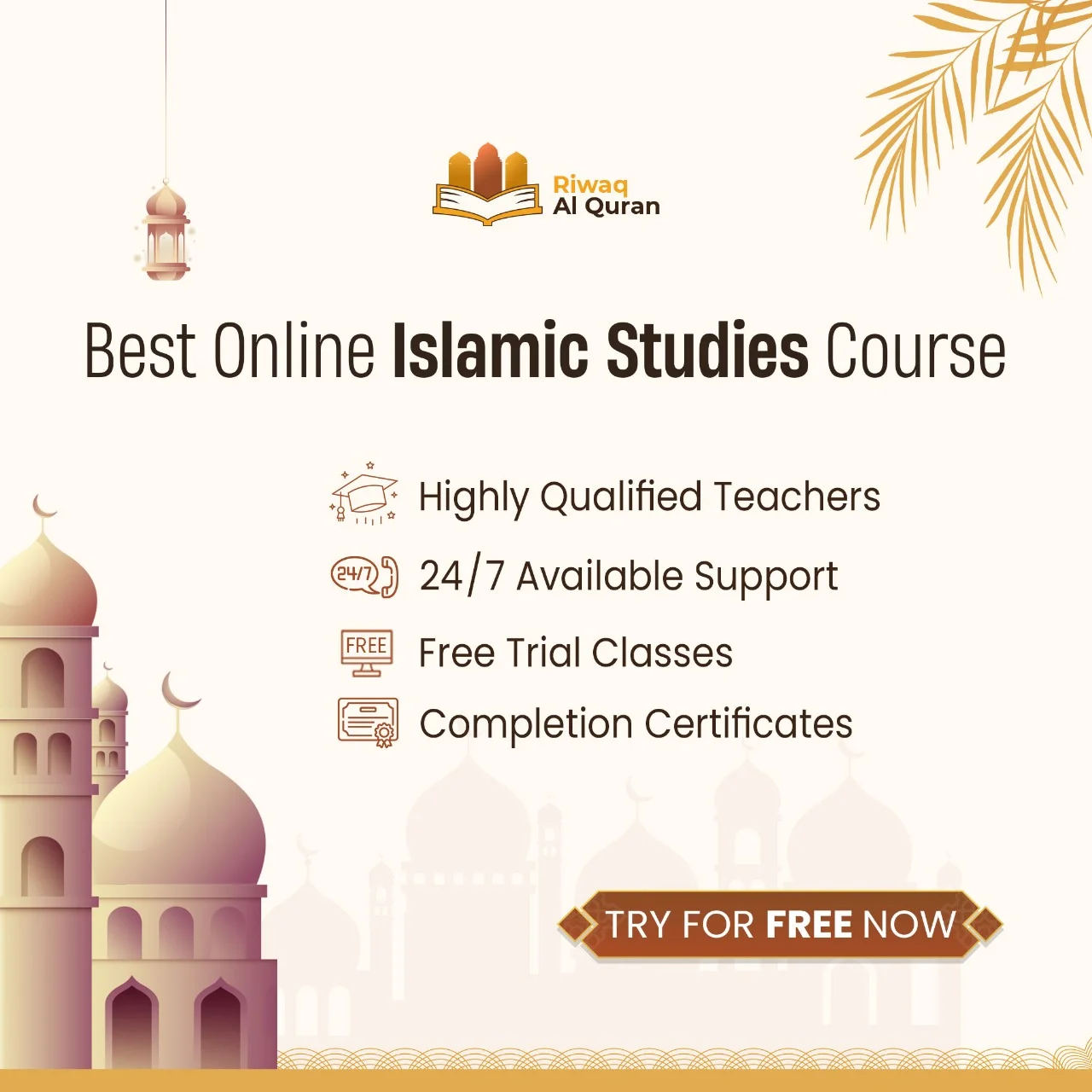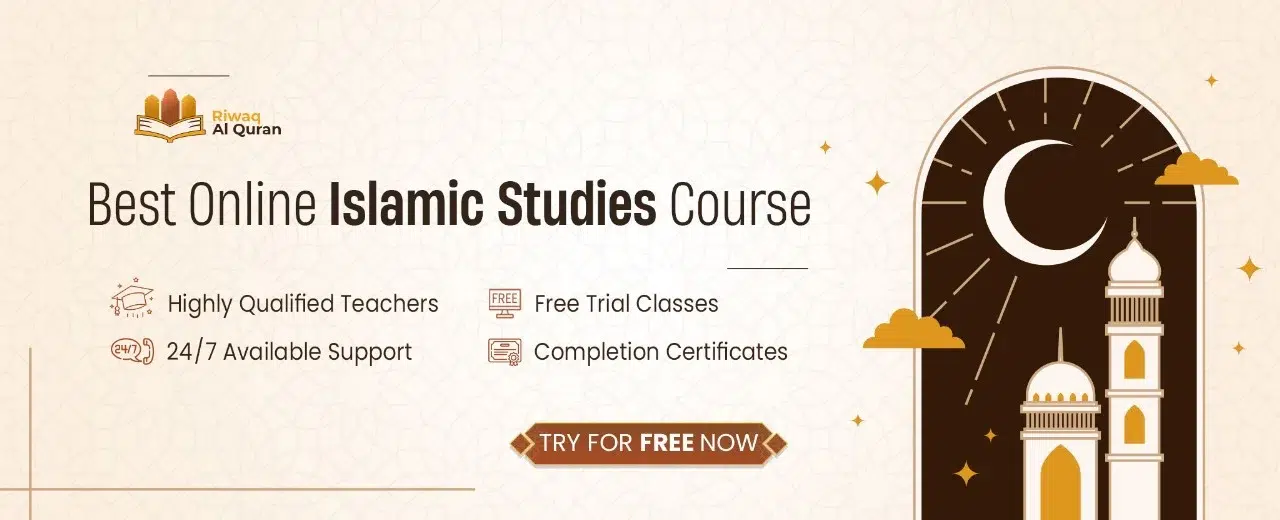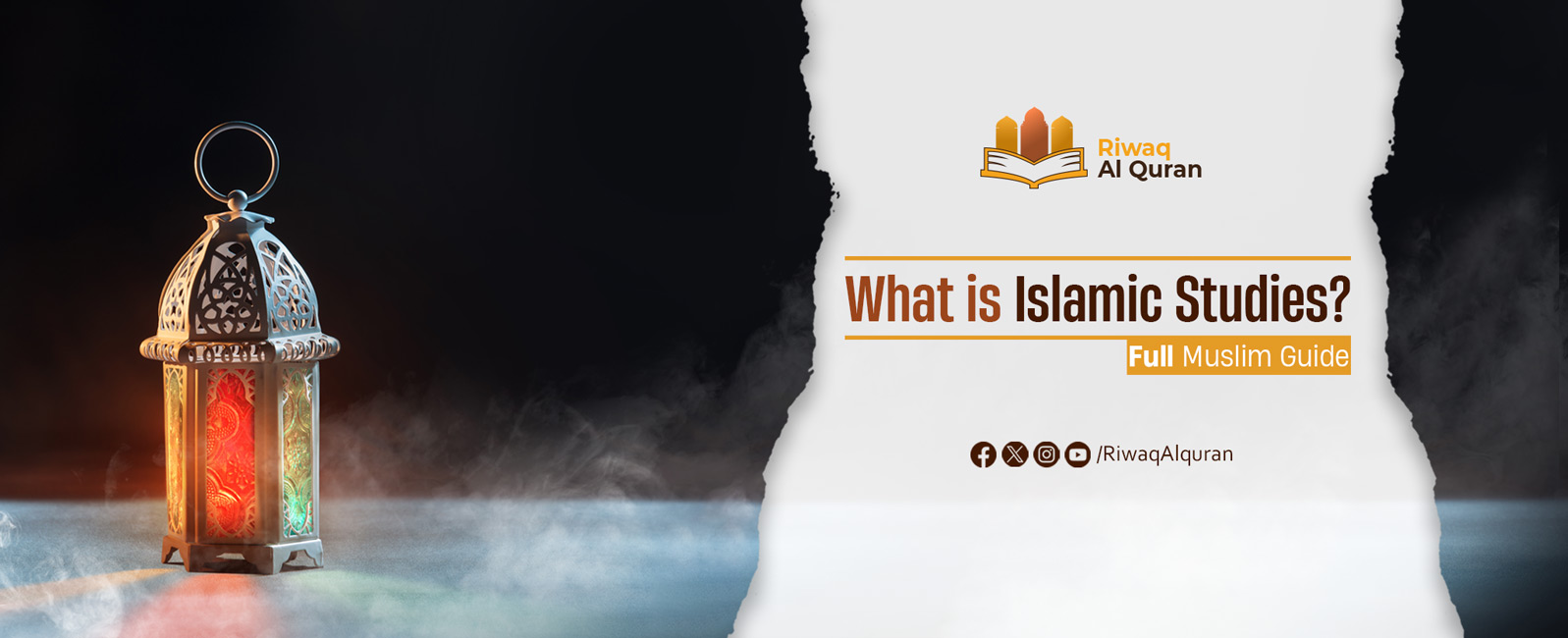Islamic studies encompass all academic fields related to Islam, including Quranic studies, Hadith, Fiqh (law), and more. These disciplines guide individuals in their pursuit of knowledge, which is considered an act of worship.
Islamic education can be pursued online or offline, with resources like Riwaq Al-Quran offering courses in Quran recitation, Tajweed, and Islamic ethics. The study of Islam not only strengthens faith but also enhances understanding of its teachings, promoting personal growth and moral conduct.
Islamic studies are all fields of knowledge related to Islam. Islamic knowledge is a vast ocean with many islands to explore. Seeking knowledge is a core worship in Islam as that’s the practical application of seeking the Truth. And so, seeking knowledge in any of the Islamic studies is one of the most noble deeds in Islam and it is an act of continuous worship of Allah.
Allah almighty says:
وقل رب زدني علماً
“And say (Allah, please increase me in knowledge)”
For those willing to learn, here is a simple guide to Islamic studies and what they are.
Table of Contents
Meaning of Islamic studies
“Islamic studies” are any academic field of study related to Islam. Knowledge is the base of Islam. That’s why there are many fields of study, to know Islam from all aspects. The Islamic fields of study aren’t totally independent, but rather intertwined and woven together with Islam as the common thread. Thus, it’s important to have an understanding of each field and not look at them independently.
Islam greatly emphasizes studying, learning, and gaining knowledge as one of the Islamic core values is to follow the Truth. It is not necessary to study Islamic studies at a University, but rather what’s important is to study under proper, respectable, and knowledgeable Muslim scholars.
Types of Islamic Studies
Islamic education can be pursued in many ways. You can start your Islamic education either Online or Offline.
You can learn Online With Riwaq Al-Quran Institute, many courses for different levels are available to help you on your learning journey.
Online learning gives you the flexibility to learn regardless of time or space. Regardless of where you are, you can organize your schedule depending on your own free time. A known drawback of online self-education is that you may feel lonely and unmotivated, especially after a while. That’s why having a mentor and a known curriculum helps with discipline and accountability.
Learning Offline is also a great way to seek Islamic education. Learning at a Masjid, Islamic center, or Islamic institute. This is the traditional way to seek knowledge as it eliminates all distractions and communication problems, thus getting the most benefit. A clear limitation for this way is the time and place constraints, where you may be in a place where no Masjids with such lessons around, no scholars in the area, or the timing simply not working.
You can start with online learning for those who find it hard to learn offline.
take your next step in your Islamic learning journey.
Start the free trial on Riwaq Al-Quran today


Experience Riwaq Al Quran Classes
Watch real moments from our live sessions at Riwaq Al Quran and see how we bring learning to life. These clips highlight our interactive, student-focused approach designed to keep learners engaged, motivated, and actively involved in every step of their educational journey.
Scope of Islamic Studies
Islamic studies cover all aspects related to Islam. Islamic scripture, creed, history, civilization, laws, and ethics. As well as social studies, Arabic language, comparative religion, and more. Studying Islam gives a holistic understanding of the Islamic faith and all its branches. Through the study of Islam, the faith grows stronger and the connection with Allah becomes deeper.
Don’t let the vastness of Islam discourage you from studying; every new knowledge gained is a great benefit of its own.
Five objectives of Islamic education
Deeds depend on their (intentions), so it’s important to have valid intentions when starting Islamic education.
Here are five objectives (Aims) to keep in mind when pursuing Islamic education:
- To please Allah by learning his guidance
- Seeking the Truth, knowing it’s evidence and the method of reaching it
- To better yourself with the knowledge you gain
- To practice and apply the knowledge and Islamic guidance in your life
- To teach others what you learn and spread Truth and Islam
Pay attention, there are many (bad intentions) that may ruin your work and efforts and turn it against you. So, avoid these at all cost
- Don’t learn to brag to others
- Don’t learn to gain (titles) or praise from people
- Don’t learn for the sake of arguing or debating
This was the advice Luqman the Wise gave to his son. And it’s also mentioned by the prophet peace be upon him. So heed this advice wisely.
Branches of Islamic studies
The major branches of Islamic studies are five branches:
- Studying Tafseer (Quran)
- Studying Hadith (Sunnah)
- Studying Aqidah (Tawheed)
- Studying Fiqh (Shari’ah)
- Studying Tazkiah (Adab)
We will discuss each field and how to study it in detail.
The Studies of the Quran (Tafseer)
The study of the Quran is the most important Islamic study.
That’s clear as the Quran is the primary source and the word of Allah. Knowing the Quran and learning it is one of the most noble pursuits of this life.
There are many fields of study related to the Quran. Starting with Arabic: learning the language of the Quran is the key to both memorizing and understanding it. Then, memorization of the Quran, knowing Tajwied and even Qira’at is one of the most noble deeds in Islam. Also, Learning Tafseer (exegesis) and understanding the context of the Quran step by step opens unimaginable doors of wisdom to the seeker.
The Quranic Studies are the specialization of Riwaq Al-Quran Institute. Select the course from Riwaq Al-Quran Courses and get started Today.
The Studies of Sunnah (Hadith)
Ilm Al-Hadith is one of the most important fields of Islamic studies. And as some scholars say:
“The science of Hadith, is the science of geniuses.”
Ilm Al-Hadith is an umbrella that has under it many other branches of studies. This is because it’s concerned about both (Validating) and (Interpreting) the sayings of the prophet, peace be upon him.
Just the branch of validating the prophetic sayings involves many intertwined fields of study. The Hadith validation and authentication studies are unique to Muslims, no other tradition in the world or history has the same level of authenticity as Islamic scriptures.
This let the Muslim know that his beliefs are based on solid ground.
The Studies of Aqidah (Tawheed)
Aqidah means (Creed, Tenet, or Belief). Tawheed is the belief in God almighty and His pure and absolute oneness as taught by His prophets and messengers.
In Islam, God almighty will hold us accountable for both our deeds and beliefs, not just our deeds. Aqidah is the biggest test in this life, as its importance is often neglected because it doesn’t have a direct impact or consequence. But in reality, faith in the heart is what translates to the deeds of the body.
Also, Islam teaches that Truth is a fundamental value that should be pursued for itself. That’s why scholars often teach students the methodology of (Evidence before belief). This guarantees that even if you misunderstand something, you aren’t biased or arrogant and easily to be correct.
Aqidah of Tawheed is the most important part of Islam. It is its core and foundation. It’s the message that God sent all the prophets and messengers to deliver and it’s always the first thing that they would call for.
As followers of the prophet Tawheed, Aqidah and Truth should be the highest priority of Muslims to learn and share.
Allah says:
قُلْ هَـٰذِهِۦ سَبِيلِىٓ أَدْعُوٓا۟ إِلَى ٱللَّهِ ۚ عَلَىٰ بَصِيرَةٍ أَنَا۠ وَمَنِ ٱتَّبَعَنِى ۖ وَسُبْحَـٰنَ ٱللَّهِ وَمَآ أَنَا۠ مِنَ ٱلْمُشْرِكِينَ
“Say this is my way, I call to Allah with clarity, I and those who follow me. And exalted is Allah; and I am not of those who associate others with Him.” Surah Yusuf
The Studies of Fiqh (Shariah)
Another massive field of Islamic studies is (Fiqh).
Fiqh means (Understanding) and it is the field that relates to all practical applications of Islam. Aqidah’s subject is beliefs, while Fiqh’s subject is actions. The two things that make Islam and what Allah will judge us on.
Fiqh is concerned about every aspect of life every action people can do, and what’s the true judgment of God almighty on that action.
As Muslims, submitting to the will of Allah is a way of life, and knowing the will of Allah about every aspect of our lives is critical to truly being a Muslim. Obviously, every Muslim doesn’t need to know everything, they only need to know what’s concerning them, while a group of Muslims dedicates their time and effort to help clarify and answer complicated situations for the general public.
The Studies of Ausoul Fiqh
Ausoul Al-Fiqh isn’t really a branch of (Fiqh) but rather the (Foundation) of Fiqh.
Ausoul Al-Fiqh is a study of how to understand scripture, what is evidence, how to rate evidence, how to combine evidence to know the coherent ruling, and so on. Asuol Al-Fiqh is the methodology for understanding. Even if you are not a scholar of Fiqh, this would give you such a clear mind to read and understand.
This also ties back to the methodology of (Evidence before belief). Having a proper (Asuoul) is a sign of a sincere seeker of truth.
The Studies of Tazkiah (Adab)
This field of study is not as academic as other fields, yet it’s one of the most pivotal fields to know in Islam.
Tazkiah mainly has to do with the purification of the heart and the deeds of the heart. While Adab has to do with mannerisms and behavior. Both fields are related and critically important to the Muslim’s daily life.
This topic had special care from Muslim scholars, they made sure to publish extensively on this topic. There are many great books to read on this, starting with Imam Al-Bukhari (Al-Adab Al-Mufrad), Imam Ahmed (Kitab Alzuhd), Imam Ibn-Alqaim (Madarij Al-Salikien), Ighathatu-Al-Lahfan, Imam Ibn Al-Jauzi (Talbis Iblis).
These writings although old, are far more advanced than modern psychology and hold great remedies to a lot of modern issues. Many modern scholars try to re-introduce this field in the name of (Islamic Psychology) or (Fiqh Al-Nafs). Check the works of (Abdulrahman Thakir Al-Hashimy), Dr (Khalid bin Hamad Al-Jabir), and others.
Even though most of this is in Arabic, being educated in this field should have a great impact on personal life and a good opportunity to convey it to Western audiences as well.
levels of Islamic education
Islamic education in any field of study generally has three levels
1- Beginner studies
Beginner levels are introductory levels to each field of Islamic knowledge. It’s usually easy to understand with simple language. To beginners, levels don’t take much time and are available to all Muslims.
The aim of beginner studies is to have a general idea of the main concepts of the study fields.
It results in an informed and intelligent Muslim.
2- Intermediate studies
Intermediate fields of study go deeper in each field of Islamic studies than the general basics. This usually takes a lot more time than beginner levels but no specialization is needed.
In fact, to have a better grasp of Islamic studies and how they interconnect, you need to at least achieve this level in multiple Islamic studies.
This level is usually the aim of (Students of Knowledge) who are on their journey to become Islamic scholars.
3- Advanced studies
The advanced studies go in-depth and into the fine details of each field. It usually requires years of study.
the aim of advanced studies is to become an Islamic scholar in the field.
Islamic scholars may be scholars in a specialized field, or pursue to be scholars in multiple fields.
Why Students Love Learning with Riwaq Al Quran
Hear directly from our students about how Riwaq Al Quran Academy has transformed their connection with the Book of Allah. Their experiences reflect the dedication, care, and quality that guide every step of our teaching.
Importance of Islamic Studies
Seeking knowledge is one of the core Islamic values.
Gaining knowledge elevates the person from the low levels of darkness to the high levels of light. Knowledge is a goal in itself because Truth is a goal in itself. It’s easy to claim to seek the truth, but only those who do it are truthful.
The importance of Islamic studies stems from the importance of Islam and the Truth. This makes Islamic studies one of the most noble deeds and best acts to worship Allah almighty.
Islamic studies are the first step in walking the path of God with enlightenment and clear guidance.
Start your journey of learning Islam today on Riwaq Al-Quran


Riwaq Al Quran is a comprehensive online platform that offers personalized Quran, Arabic and Islamic Studies Online classes for individuals of all ages and backgrounds.
Their experienced instructors use a structured curriculum to cover Tajweed, Tafsir, and Memorization, providing easy and effective access to learning the Quran.
The advanced online classes allow for seamless communication and interaction between students and teachers. Join Riwaq Al Quran for a deeper connection with the Quran.
We offer several courses such as:
- Online courses for kids.
- Online Quran classes for kids and adults.
- Online Arabic courses
- Online Ijazah courses
- Online Islamic Studies courses.
Here are a sample of our set of Quran Courses that will be helpful for you:
- Online Tafseer Course: Delve into Quranic meanings with our insightful online Tafseer course.
- Noorani Qaida Online: Learn Quranic basics efficiently through our Noorani Qaida online program.
- Online Quran Recitation Course: Enhance Quranic recitation skills through our expert-led online course.
- Online Tajweed Classes: Master Tajweed rules for beautiful Quranic recitation in online classes.
- Quran Memorization Online Course: Memorize the Quran effectively with our specialized online memorization course.
- Online Qirat Course: Explore diverse Qirat styles with our comprehensive online Qirat course.
- Online Quran Classes for Kids: Nurture a love for the Quran in kids through interactive online classes.
Finally
Know that as a Muslim, learning and gaining knowledge should never stop. Learning should be a lifestyle and knowledge should be a primary goal.
As Imam Ibn Hanbal used to say: “The ink is with me to my grave.”
Also, know that studying is done for pure purposes and practice. Knowing without action is just evidence against the slacker.
Knowledge is one of the most precious things Allah gifts us in life, and the gratitude for such a blessing is to share it. Spread the knowledge with others and your knowledge will also increase.
And finally, remember to always have Patience. All those three goals need a different type of patience, so ask Allah’s aid then keep monitoring your heart and keep it steady while learning, acting, and teaching.


































